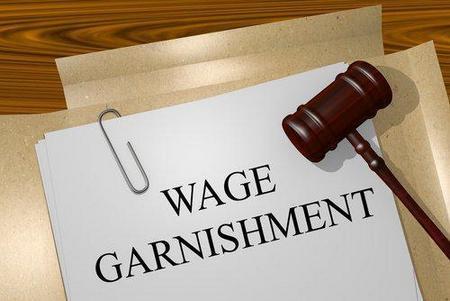Recent Blog Posts
What Is Forensic Accounting?
 Forensic accounting is the practice of using accounting skills to uncover acts of fraud or embezzlement. It can be used in a variety of situations, such as determining whether a financial adviser or other trusted party is embezzling money from his or her clients or determining whether a business is actually a front for a money laundering operation. In a divorce case, forensic accounting can be used to uncover assets that an individual is attempting to hide from his or her partner in an effort to come away from the divorce with a greater share of the couple's marital asset pool. If you suspect your partner is doing this, speak with your divorce attorney about your options for using forensic accounting to recover the assets.
Forensic accounting is the practice of using accounting skills to uncover acts of fraud or embezzlement. It can be used in a variety of situations, such as determining whether a financial adviser or other trusted party is embezzling money from his or her clients or determining whether a business is actually a front for a money laundering operation. In a divorce case, forensic accounting can be used to uncover assets that an individual is attempting to hide from his or her partner in an effort to come away from the divorce with a greater share of the couple's marital asset pool. If you suspect your partner is doing this, speak with your divorce attorney about your options for using forensic accounting to recover the assets.
How Does a Forensic Accountant Find Assets?
A forensic accountant is an accountant who uses investigative skills to determine how money is earned, invested, saved, and spent. Forensic accountants use multiple methods to trace assets. A few of these methods are listed below:
Gray Divorce: When You Have Adult Children
 When you are going through a divorce, issues pertaining to your children are often at the top of your list of concerns. Topics like your parenting time agreement, child support, and how the divorce and any future partners will affect your relationships with your children are likely at the forefront of your mind not only while your divorce is pending, but long after it is finalized.
When you are going through a divorce, issues pertaining to your children are often at the top of your list of concerns. Topics like your parenting time agreement, child support, and how the divorce and any future partners will affect your relationships with your children are likely at the forefront of your mind not only while your divorce is pending, but long after it is finalized.
If your children are over the age of 18, though, you do not have to worry about issues like parenting time and child support. If they are beyond the point of needing financial help from you or your former spouse, generally in or beyond their mid-twenties, your children's needs will not come up in your divorce proceeding at all. But although adult children are not financially or physically affected by their parents' divorces, they can be affected emotionally. Consider the following as you proceed through the divorce process.
Your Children Can Understand Why You Are Divorcing
Changing Your Name after Divorce
 For many engaged women, the decision to change their name to their husband's or not after marriage is fairly easy to make. Most women know long before they get engaged, even before they meet the men they eventually marry, whether they want to change their name or not because for many, the decision is primarily about her attachment to her own name. When a woman who changed her name gets divorced, she has a new decision to make: to change her name again or not. For some, changing their name back to their family name is an empowering way to strip themselves of the marriage and all its problems whereas for others, the name is no longer just their husband's, but their own and keeping it has nothing to do with holding onto him or the marriage. If you are not sure about whether you want to change your name after your divorce, consider the following:
For many engaged women, the decision to change their name to their husband's or not after marriage is fairly easy to make. Most women know long before they get engaged, even before they meet the men they eventually marry, whether they want to change their name or not because for many, the decision is primarily about her attachment to her own name. When a woman who changed her name gets divorced, she has a new decision to make: to change her name again or not. For some, changing their name back to their family name is an empowering way to strip themselves of the marriage and all its problems whereas for others, the name is no longer just their husband's, but their own and keeping it has nothing to do with holding onto him or the marriage. If you are not sure about whether you want to change your name after your divorce, consider the following:
Your Professional Identity
For many women, the decision to change one's name or not at marriage and at divorce hinges on how her professional identity is tied to the name. If you are well known by a specific name in your field, it might not be in your best interest to change it.
When Children of Divorce Grow Up
 When a couple with children divorces, they often wonder about how their divorce will affect their children in the future. Some of these individuals have parents who divorced when they were children and continue to feel the effects of the divorce today. Others worry that divorcing will lead their children down a path of instability and might consider staying together until the children are grown. Current research supports that this is not the healthiest option for most families and that remaining in an unhappy marriage can be worse for parents and children than divorcing.
When a couple with children divorces, they often wonder about how their divorce will affect their children in the future. Some of these individuals have parents who divorced when they were children and continue to feel the effects of the divorce today. Others worry that divorcing will lead their children down a path of instability and might consider staying together until the children are grown. Current research supports that this is not the healthiest option for most families and that remaining in an unhappy marriage can be worse for parents and children than divorcing.
How an individual is affected by his or her parents' divorce can depend on a lot of factors, such as:
- His or her age when the divorce occurred;
- The reason for the divorce;
- His or her personality; and
- How his or her parents interacted with each other and the individual after the divorce.
Having Divorced Parents Makes an Individual More Likely to Divorce
Options when Spouse Has Hidden Debt
 After you are married, any purchases you make, income you earn, and debts you take on are considered to be “marital property,” which means that you and your spouse are both responsible for and entitled to it. In contrast, debts taken on and purchases made prior to entering the marriage are known as “singly-held” property, which means that the individual who took them on is the only one responsible for them. Ideally, a married individual discusses his or her financial decisions with his or her spouse so the couple can make the decisions together. But we do not live in an ideal world and the reality is that a married individual can suddenly face collection attempts for debts that his or her spouse secretly racked up or a be held responsible for these debts during his or her divorce.
After you are married, any purchases you make, income you earn, and debts you take on are considered to be “marital property,” which means that you and your spouse are both responsible for and entitled to it. In contrast, debts taken on and purchases made prior to entering the marriage are known as “singly-held” property, which means that the individual who took them on is the only one responsible for them. Ideally, a married individual discusses his or her financial decisions with his or her spouse so the couple can make the decisions together. But we do not live in an ideal world and the reality is that a married individual can suddenly face collection attempts for debts that his or her spouse secretly racked up or a be held responsible for these debts during his or her divorce.
Prove That You Did Not Know about the Debt
Illinois is an equitable distribution state, which means that a married couple's assets and debts are divided among them according to the circumstances of their marriage and divorce. This is actually a better setup for individuals facing spouses' secret debts than how some states divide a couple's assets and debts, which is known as community property. In a community property state, all marital assets and debts are divided 50/50.
Special Needs Children and Divorce
 Children do not cause divorce. However, conflicts regarding their care can drive a couple toward divorce. The most common causes of divorce in the United States are a lack of commitment to the marriage, infidelity, and continual conflict between the partners. These conflicts can be about how the money is handled, how the household chores are divided, or, as any parent knows, issues related to the couple's children. Sometimes, these issues are severe to the point that couples divorce because of ongoing difficulties related to the care of their children and an inability to work together to overcome these difficulties.
Children do not cause divorce. However, conflicts regarding their care can drive a couple toward divorce. The most common causes of divorce in the United States are a lack of commitment to the marriage, infidelity, and continual conflict between the partners. These conflicts can be about how the money is handled, how the household chores are divided, or, as any parent knows, issues related to the couple's children. Sometimes, these issues are severe to the point that couples divorce because of ongoing difficulties related to the care of their children and an inability to work together to overcome these difficulties.
But how can you combat these difficulties in your marriage or discuss them without sounding like a monster? Nobody wants to blame their marital issues on their child but the truth is, raising children is difficult and often tests a couple's ability to work together constructively. Extreme behavior problems, difficulty integrating a spouse's child into your new marriage, a child's mental or physical disability, or a case of drastically different parenting perspectives can stress a marriage to its breaking point and result in divorce for a couple.
Using a Polygraph as Part of a Parenting Time Evaluation
 Polygraphs, also known as “lie detector tests,” are a fairly common trope in talk shows and crime dramas. In these fictional depictions, the subject is wired to the test and asked questions about his or her alleged crime, usually as the wires of the test move rapidly back and forth on the result paper. But are polygraph tests really used this way? No. Today, most polygraph tests are computerized. They are also not admissible in most courts of law. This includes Illinois. If your former partner asks you to take a polygraph test, do not feel like you have to – the results of the test have no value in the courtroom. You might be advised to undergo such a test if you are facing an accusation of child abuse or domestic violence. Do not take the test unless you have discussed it thoroughly with your attorney. You are under no legal obligation to take a polygraph test in any circumstance, nor are the results of one admissible in court. Talk to your family lawyer about the possibility of using a polygraph as part of your parenting time evaluation.
Polygraphs, also known as “lie detector tests,” are a fairly common trope in talk shows and crime dramas. In these fictional depictions, the subject is wired to the test and asked questions about his or her alleged crime, usually as the wires of the test move rapidly back and forth on the result paper. But are polygraph tests really used this way? No. Today, most polygraph tests are computerized. They are also not admissible in most courts of law. This includes Illinois. If your former partner asks you to take a polygraph test, do not feel like you have to – the results of the test have no value in the courtroom. You might be advised to undergo such a test if you are facing an accusation of child abuse or domestic violence. Do not take the test unless you have discussed it thoroughly with your attorney. You are under no legal obligation to take a polygraph test in any circumstance, nor are the results of one admissible in court. Talk to your family lawyer about the possibility of using a polygraph as part of your parenting time evaluation.
It Does Not Have to End in Divorce: Strategies to Save Your Marriage
 If you and your spouse find yourselves constantly fighting, unable to agree about how you spend your money or how you run your household, or either of you has considered committing infidelity or even gone through with an affair, you might think your marriage is over. Sometimes, it is. But other times, a marriage can emerge stronger than it was before if both partners are willing to work together to fix what went wrong. It is important to consider certain strategies you can use to repair your marriage. Remember, fixing your marriage will require significant input from both partners and sometimes, divorce is inevitable even when a couple works hard to avoid it. If your marriage falls into this category, do not think of the divorce as a personal failure. Sometimes, a couple simply is not compatible.
If you and your spouse find yourselves constantly fighting, unable to agree about how you spend your money or how you run your household, or either of you has considered committing infidelity or even gone through with an affair, you might think your marriage is over. Sometimes, it is. But other times, a marriage can emerge stronger than it was before if both partners are willing to work together to fix what went wrong. It is important to consider certain strategies you can use to repair your marriage. Remember, fixing your marriage will require significant input from both partners and sometimes, divorce is inevitable even when a couple works hard to avoid it. If your marriage falls into this category, do not think of the divorce as a personal failure. Sometimes, a couple simply is not compatible.
Seek Professional Counseling
One of the best ways to get a handle on the actual issues at play in your marriage and advice about how to overcome them is to schedule a few sessions with a licensed marriage counselor. Marriage counseling is a type of therapy where a couple works with a professional counselor to identify and work through the problems that are plaguing their marriage, much like an individual with other mental health issues works with a psychological counselor to work through his or her own personal problems. Couples can have sessions with a marriage counselor together or individuals can meet with the counselor alone.
Can I Keep My Ex's New Partner from Spending Time with My Child?
 It is unreasonable to expect a divorced individual to remain single for the rest of his or her life. As we move past a divorce and into the next phases of life, many of us find new partners. For a child, seeing his or her parent start to date, live with, or marry a new partner can be stressful. It can also be stressful for the child's other parent, who might feel resentment toward the new partner or oppose something about him or her, such as his or her religious practices or values.
It is unreasonable to expect a divorced individual to remain single for the rest of his or her life. As we move past a divorce and into the next phases of life, many of us find new partners. For a child, seeing his or her parent start to date, live with, or marry a new partner can be stressful. It can also be stressful for the child's other parent, who might feel resentment toward the new partner or oppose something about him or her, such as his or her religious practices or values.
If you find yourself uncomfortable with the idea of your child being around your former spouse's new partner, ask yourself why this is. You cannot simply prohibit this individual from being around your child because you do not like him or her. When your child is with his or her other parent, that parent can determine who is to be around the child. However, the court can place restrictions on your parenting time agreement if it determines that exposure to a certain individual is not in your child's best interest.
Wage Garnishment and Income Withholding
 After a divorce, you could be required to make child support or spousal maintenance payments. These are meant, respectively, to cover the added expenses your former spouse faces as the primary parent of your children or to soften the financial blow that he or she suffered as a result of your divorce. Although you might feel like being required to make either or both of these payments is unfair, failure to make them is an act of contempt of court. If you cannot afford to make your spousal maintenance or child support payments, talk with your attorney about petitioning to the court to have your order modified. This is the correct way to handle your expenses, rather than allowing yourself to become delinquent. If you allow yourself to fall behind on your required payments, you could face court action such as wage garnishment, income withholding, and the loss of certain privileges until you pay the money you owe to your former spouse. Having a balance of unpaid child support or spousal maintenance is known as being in arrears.
After a divorce, you could be required to make child support or spousal maintenance payments. These are meant, respectively, to cover the added expenses your former spouse faces as the primary parent of your children or to soften the financial blow that he or she suffered as a result of your divorce. Although you might feel like being required to make either or both of these payments is unfair, failure to make them is an act of contempt of court. If you cannot afford to make your spousal maintenance or child support payments, talk with your attorney about petitioning to the court to have your order modified. This is the correct way to handle your expenses, rather than allowing yourself to become delinquent. If you allow yourself to fall behind on your required payments, you could face court action such as wage garnishment, income withholding, and the loss of certain privileges until you pay the money you owe to your former spouse. Having a balance of unpaid child support or spousal maintenance is known as being in arrears.











